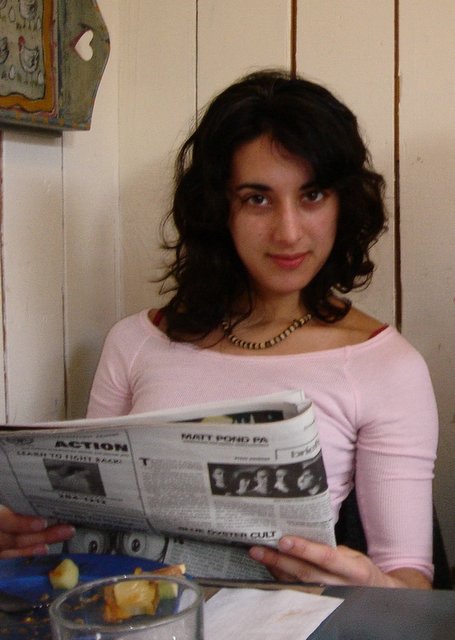from Zen and the Art of Motorcycle Maintenance
"The 'it' is a kind of force that gives rise to technology, something undefined, but inhuman, mechanical, lifeless, a blind monster, a death force... Somewhere there are people who understand it and run it, but those are technologists, and they speak an inhuman language when describing what they do. And their things, their monster keeps eating up land and polluting their air and lakes, and there is no way to strike back and it, and hardly any way to escape it.....All this technology has somehow made you a stranger in your own land. Its very shape and appearance and mysteriousness say, "Get out". You know there's an explanation for all this somewhere and what it's doing undoubtedly serves mankind in some indirect way but that isn't what you see...the natural feelings of very many people are similar on this matter; so that when you look at them collectively you get the illusion of a mass movement, an antitechnological left emerging, looming up from apparently nowhere, saying "Stop the techonolgy. Have it somewere else. Don't have it here."...It is against being a mass person that they seem to be revolting. And they feel that technology has got a lot to do with the forces that are trying to turn them into mass people and they don't like it."


10 Comments:
Is a mortocycle, a symbol of freedom, of movement, being able to travel as fast as a cheetah, fly like a seagull, not technology in itself?
What does the book say about this?
In one sense, the motorcycle is a means of experiencing your surroundings in a more immediate and direct way
"In a car, you're always in a compartment, and because you're used to it you don't realize that through that car window everything you see is just more tv. you're a passive observer and it is all moving by you boringly in a frame"
He also uses it as the basis to start a discussion on two seemingly opposing views, one analytical (or "classical") and one superficial (or "romantic").
"You discuss things in terms of their immediate appearance or you discuss them in terms of their underlying form."
One way of looking at something is purely just the way it looks, taking things at face value. Another way is looking at something in terms of what it's made of and what purpose it could serve. The Big question seems to be how to unite the two, but I'm not so sure that they actually oppose each other. Interesting book anyway.
I find this book difficult: partly b/c I didn't appreciate the writing, and partly b/c I felt it was trying to hard.
Yet I did like the way it focussed on life as predominantly a battle of the self.
And the motorcycle I think ties in here. As you say, it is a tool that can allow you to experience (the wonder/brutality of life) in a more immediate way, a more imminent way. If you've ever been on a motorcycle, you know that the peril it produces leads to adroitness, but also to an inner depth of calm, does that make sense?
I also think that the motorcycle, in its intersection with something zen (or in this book the care and wonder one must take to maintain such a tool), I think this points to the necessity of locking into life with an appreciation and care for every nuance, for every fact, for every being; anything else is a failure of the human experience, no?
Yet, like it did for the protagonist, this view, this approach, can be one hell of a ride.
And more generally, at times, this can associate with a destructive character, as really, who goes on such journey's other than the sensitive and the tortured?
:)
In the end, it is our inability to reconcile the two most pressing issues of life, appearance and essence, facts and myth, that troubles us so.
Yet these are not opposed, only reciprocally mediating parts of a joyous whole.
So journey on
in this symbol of freedom
and movement, and travel
like a being cheetah and a
seagull in itself.
Word.
The reference to "it" is interesting. Something we are inextricably linked to and a part of, and yet still very detached from with perhaps little hope of ever being able to see the whole...
What is "it"?
It is you.
:)
More please.
On exploring the realms of reason:
"present day reason is an analogue of the flat earth of the medieval period. If you go too far beyond it you're presumed to fall off, into insanity. And people are very much afraid of that...this fear of insanity is comparable to the fear people once had of falling off the edge of the world."
In other words, the next revolution is one of the mind.
The next revolution
will be your mind
and my mind
and their mind
and our mind
it is Mind
and yours and
mine to be
the revolution
of the next
expansive explosive
mind the revolution
Mind turns me on, is that sick?
you have to push your mind to limits, every day, even though it may feel unpleasant at the time, its the only way to grow, its the only way to feel truly alive.
Post a Comment
<< Home